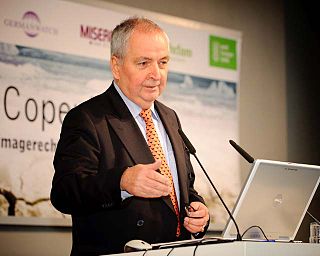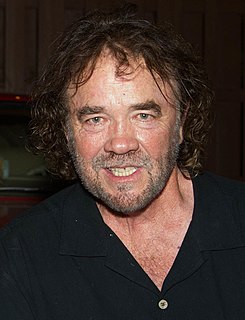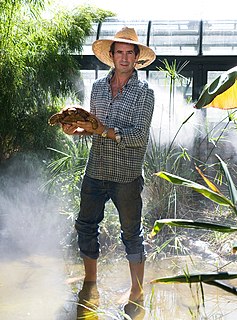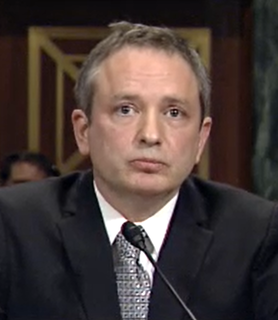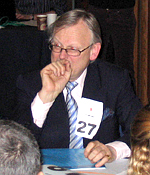A Quote by Yossi Ghinsberg
As to the Amazon itself, the transition from conservation to sustainable development was a huge awakening since conservation was a western concept and strategy to encourage the developing world to protect biodiversity resources for the sake of future generations and the wellbeing of the planet.
Related Quotes
We have a very old conservation movement, particularly in the United States, which has focused on campaigns to protect endangered species: the spotted owl, the old-growth forest. But usually it stops there. To me, biodiversity is the full spectrum. Species conservation is not only about wilderness conservation. It?s also about protecting the livelihood of people even while changing the dominant relationship that humans have had with other species. In India, it?s an economic issue, not just an ecological one.
Our duty to the whole, including the unborn generations, bids us to restrain an unprincipled present-day minority from wasting the heritage of these unborn generations. The movement for the conservation of wildlife and the larger movement for the conservation of all our natural resources are essentially democratic in spirit, purpose, and method.
The students of biodiversity, the ones we most need in science today, have an enormous task ahead of molecular biology and the medical scientists. Studying model species is a great idea, but we need to combine that with biodiversity studies and have those properly supported because of the contribution they can make to conservation biology, to agrobiology, to the attainment of a sustainable world.
I spent the first years working in Jordan trying to learn as much as I could about what was taking place in the country, about where there were gaps in the development process that needed attention. Inevitably, there were certain common denominators which are fairly common to all developing societies, perhaps to all societies: that quality education be accessible to everyone, not just a limited elite few; the sustainable conservation of natural resources; the full engagement of women in national development; and the value of cross-cultural exchange and understanding to international relations.
We must encourage energy conservation and sustainable development. Young people are the ones who are most environmentally conscious in Ireland, so that to some extent they are educating their parents. They are tackling issues of waste disposal and so on. The schools help, because they put a lot of stress on environmental awareness.
The Conservation Buck Challenge was designed to engage and mobilize the hunting community to preserve the outdoor experience for future generations. Our members will be ambassadors for ethical hunting, respect for private property rights, support for conservation funding and programs that give our children the chance to learn the valuable lessons of nature.



